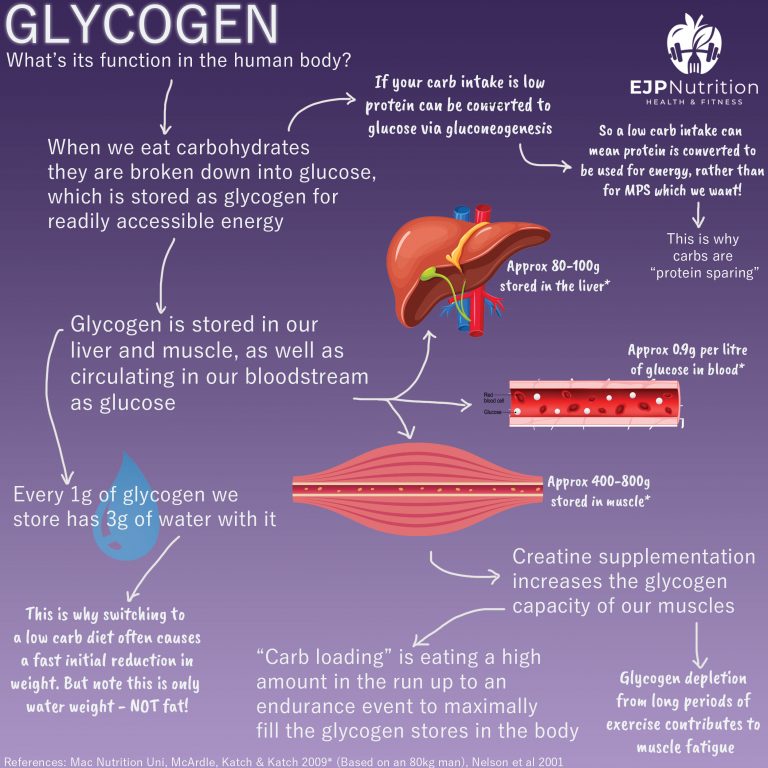Glycogen has come up in a few posts recently, so a little recap for reference. Carbohydrates are the body’s preferred source of energy, as they are easily stored & used. Glycogen is important as it is a readily mobilized storage form of glucose.
When carbohydrates are consumed they are broken down into their simplest form, which is glucose. Glucose is then stored as glycogen in the liver & in muscle. Insulin helps control the amount of glucose in our blood, & facilitates the movement into muscle cells or the liver. But insulin needs at least one post to itself, so more on that another day!
Weight
Glycogen is stored with 3-4 parts water. Ever noticed if you had a high carb day you see a spike on the scales the following morning? Or the opposite you switch to a low-carb diet & see a fast initial drop? This is down to the change in water weight/retention. Weight loss doesn’t equal fat loss, & carbohydrate intake plays a big role in daily fluctuations.
Energy
Glycogen stores in liver & muscle decrease during physical activity. The higher the intensity & longer you are active, the faster your stores will be depleted. The fitter you are, the more efficient your body becomes, so you use up energy less quickly. Starting training fully fuelled will improve the quality of your session too.
Supplements
Creatine supplementation has been shown to increase glycogen storage. This is beneficial for endurance athletes & performance. L-Carnitine has been found to be muscle glycogen sparing during low intensity exercise. So these are options to help training or performance.
Summary
Other than that having a good variety of carbs in your diet will replenish the glycogen which was utilised during physical activity. Current evidence shows carbohydrate-rich diets remain optimal for performance. A ketogenic (low carb) diet at this point has not been shown to have performance benefits.
Unless you are competing multiple times in one day, or have numerous high intensity training sessions close together, there isn’t a need to immediately consume carbs right after exercise to replenish your glycogen stores. Also most normal training sessions (eg. an hour at the gym) will not be fully depleting your stores anyway.
References: Mac Nutrition Uni, Murray & Rosenbloom 2018, Wall et al 2012, Kreitzman et al 1992, Scott & Deuster 2017, Friedman et al 1991
(Reposted from Instagram)
Bonus Note
Carbohydrates are often referred to as “protein sparing”. To expand on that, we want protein primarily for muscle protein synthesis (MPS, for growth and recovery), and the other processes only protein can be used for. Its primary function is not to provide energy. However when your carb intake is low the body converts protein into glucose as it needs an energy source. So having enough carbs in your diet means protein can do the jobs we want, rather than being converted.


